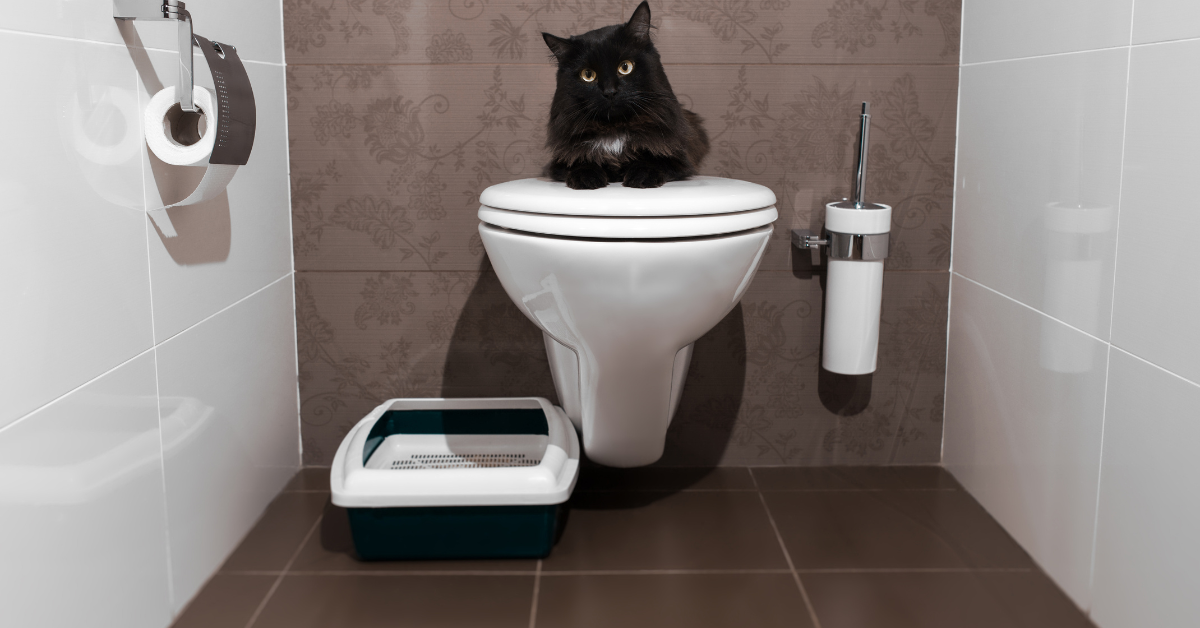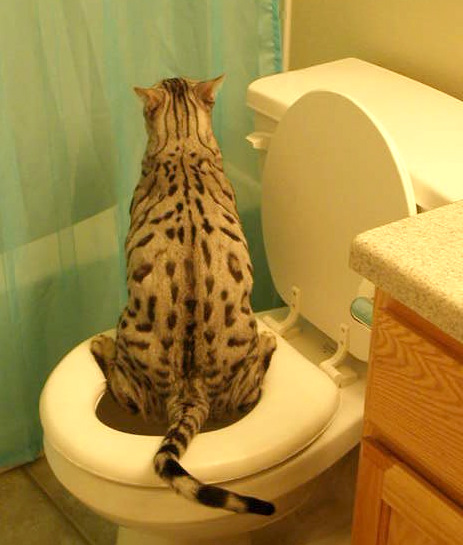Avoid Clogs and Damage: Don't Flush Cat Poop Down Your Toilet - Professional Insights
Avoid Clogs and Damage: Don't Flush Cat Poop Down Your Toilet - Professional Insights
Blog Article
They are making several good annotation relating to Can You Flush Cat Poo or Litter Down the Toilet? overall in the content further down.

Introduction
As cat owners, it's necessary to bear in mind exactly how we take care of our feline friends' waste. While it might appear convenient to flush feline poop down the toilet, this method can have detrimental repercussions for both the setting and human health and wellness.
Alternatives to Flushing
Fortunately, there are much safer and a lot more liable ways to deal with feline poop. Consider the adhering to options:
1. Scoop and Dispose in Trash
One of the most common method of disposing of pet cat poop is to scoop it into an eco-friendly bag and toss it in the trash. Make certain to use a devoted trash inside story and dispose of the waste promptly.
2. Usage Biodegradable Litter
Select naturally degradable feline litter made from materials such as corn or wheat. These trashes are eco-friendly and can be safely thrown away in the trash.
3. Hide in the Yard
If you have a yard, take into consideration hiding feline waste in a designated location away from veggie gardens and water resources. Be sure to dig deep adequate to stop contamination of groundwater.
4. Set Up a Pet Waste Disposal System
Buy an animal waste disposal system particularly developed for cat waste. These systems utilize enzymes to break down the waste, reducing odor and environmental impact.
Health Risks
In addition to ecological worries, purging pet cat waste can additionally pose health and wellness risks to human beings. Feline feces might consist of Toxoplasma gondii, a bloodsucker that can trigger toxoplasmosis-- a possibly serious illness, especially for pregnant females and people with damaged body immune systems.
Environmental Impact
Purging cat poop presents dangerous virus and parasites right into the water system, posing a substantial risk to marine environments. These pollutants can adversely affect aquatic life and compromise water high quality.
Verdict
Liable pet possession expands past giving food and sanctuary-- it also includes appropriate waste monitoring. By refraining from purging pet cat poop down the commode and choosing alternative disposal methods, we can reduce our environmental impact and protect human health.
Why Can’t I Flush Cat Poop?
It Spreads a Parasite
Cats are frequently infected with a parasite called toxoplasma gondii. The parasite causes an infection called toxoplasmosis. It is usually harmless to cats. The parasite only uses cat poop as a host for its eggs. Otherwise, the cat’s immune system usually keeps the infection at low enough levels to maintain its own health. But it does not stop the develop of eggs. These eggs are tiny and surprisingly tough. They may survive for a year before they begin to grow. But that’s the problem.
Our wastewater system is not designed to deal with toxoplasmosis eggs. Instead, most eggs will flush from your toilet into sewers and wastewater management plants. After the sewage is treated for many other harmful things in it, it is typically released into local rivers, lakes, or oceans. Here, the toxoplasmosis eggs can find new hosts, including starfish, crabs, otters, and many other wildlife. For many, this is a significant risk to their health. Toxoplasmosis can also end up infecting water sources that are important for agriculture, which means our deer, pigs, and sheep can get infected too.
Is There Risk to Humans?
There can be a risk to human life from flushing cat poop down the toilet. If you do so, the parasites from your cat’s poop can end up in shellfish, game animals, or livestock. If this meat is then served raw or undercooked, the people who eat it can get sick.
In fact, according to the CDC, 40 million people in the United States are infected with toxoplasma gondii. They get it from exposure to infected seafood, or from some kind of cat poop contamination, like drinking from a stream that is contaminated or touching anything that has come into contact with cat poop. That includes just cleaning a cat litter box.
Most people who get infected with these parasites will not develop any symptoms. However, for pregnant women or for those with compromised immune systems, the parasite can cause severe health problems.
How to Handle Cat Poop
The best way to handle cat poop is actually to clean the box more often. The eggs that the parasite sheds will not become active until one to five days after the cat poops. That means that if you clean daily, you’re much less likely to come into direct contact with infectious eggs.
That said, always dispose of cat poop in the garbage and not down the toilet. Wash your hands before and after you clean the litter box, and bring the bag of poop right outside to your garbage bins.
https://trenchlesssolutionsusa.com/why-cant-i-flush-cat-poop/

I stumbled upon that blog post on How to Dispose of Cat Poop and Litter Without Plastic Bags when surfing around the internet. Kindly take the time to share this page if you appreciated it. Thanks a lot for taking the time to read it.
Click Here Report this page